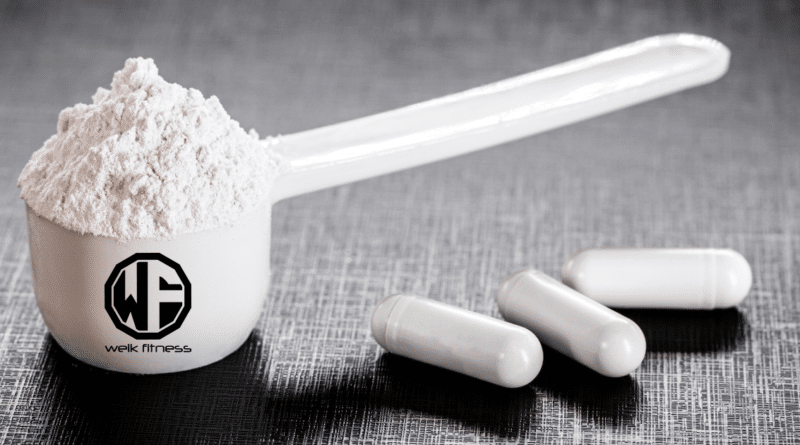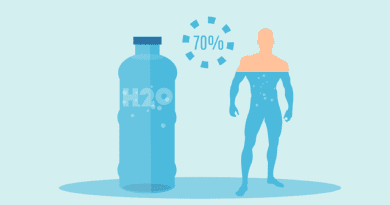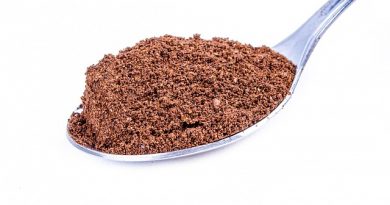Creatine Nitrate: A Superior Choice for Lifters & Athletes
Creatine monohydrate, creatine HCl, CEE, and now creatine nitrate — what’s up with all the various creatines available today?
Well, for starters… we all like options. Some people are non-responders to creatine monohydrate and need something like creatine HCl to see any sort of benefit. But where does creatine nitrate fall into the equation and mix?
Is there a battle of creatine nitrate vs creatine monohydrate? But let’s be real… everything is trying to compete with monohydrate. Creatine nitrate is a new form of creatine compared to the tried-and-true monohydrate. Either creatine will work, as the benefits of creatine monohydrate have been shown in hundreds of studies.
Overall, elevating your athletic performance and results in the gym is no small feat. You’re on the hunt for something that not only elevates your power but also ensures you can push through longer, more intense workouts, aren’t you?
I completely get it; I’ve walked that path myself, scouring through countless options in search of the holy grail of supplements.
Related Article: The Best Creatine on Amazon [Top 10 Edition]
During my quest, creatine nitrate caught my eye — a compelling blend of creatine and nitrates. This powerhouse combination has captured the attention of the athletic community for its solid evidence showing boosts in speed and strength among users.

Having experimented with more supplements than I care to remember over the years (and trust me, there’s been a laundry list), my curiosity about this particular one went into overdrive.
In this article, we’ll dive deeper into everything you need to know about creatine nitrate — examining how it operates to ensure it aligns with your fitness and health goals.
Are you ready to potentially transform your workout routine? Let’s jump into things!
Table of contents
Key Takeaways
- Creatine nitrate mixes creatine with nitrates, making it dissolve better and work faster than other forms.
- This supplement boosts muscle strength, endurance, and recovery while helping you train harder and longer.
- It offers fewer side effects like bloating compared to creatine monohydrate.
- Athletes can see improved performance in high-intensity workouts with increased power output.
- To use creatine nitrate effectively, start with a loading phase followed by a maintenance dose, stay hydrated, and possibly pair it with protein.
Disclaimer: This article is for informational purposes only and is not meant to treat or diagnose any condition. It is recommended that you speak with your doctor before starting any exercise program, changing your daily nutrition, or adding any supplements to your regimen.
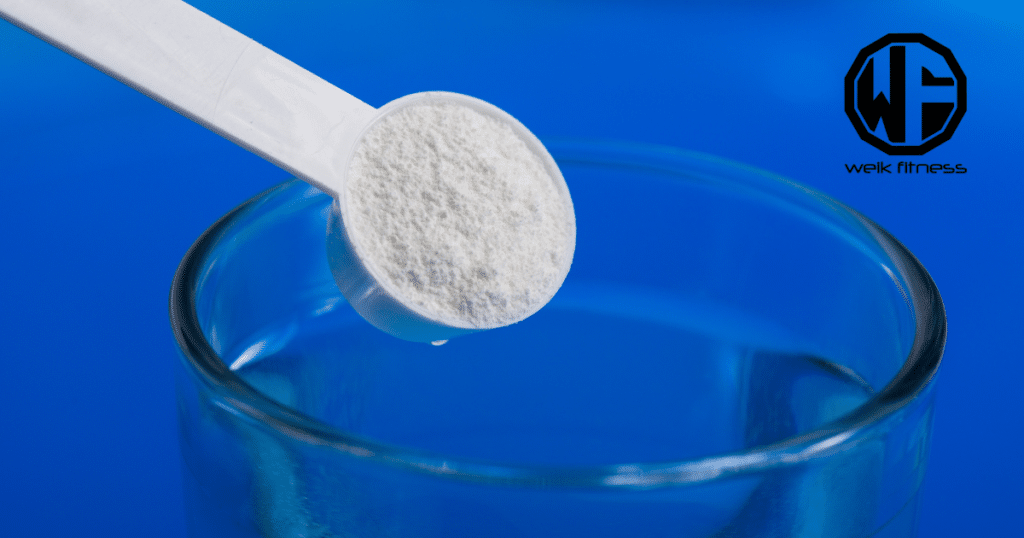
What is Creatine Nitrate?
Creatine nitrate merges two things I’ve talked and written about in the past: creatine and nitrates.
It’s a version of creatine mixed with a nitrate group. This mix makes it dissolve better in liquids than the old-school creatine monohydrate version does.
Creatine nitrate stands out by being more water-soluble. More water-soluble means it can get into my system faster, which is great for my workouts.
Related Article: Maximize Muscle Growth — The Benefits of Creatine CEE
I’ve used both types (nitrate and monohydrate) during different training phases. With creatine nitrate, I noticed it didn’t just sit in my stomach like some powders do. It felt smoother to drink before hitting the gym and when tossed into a post-workout shake, it’s like it was never even there in terms of taste and texture.
For me, that improved solubility translates to less hassle and more focus on getting stronger and quicker without worrying about supplement mix-up issues.
Key Benefits of Creatine Nitrate for Athletes
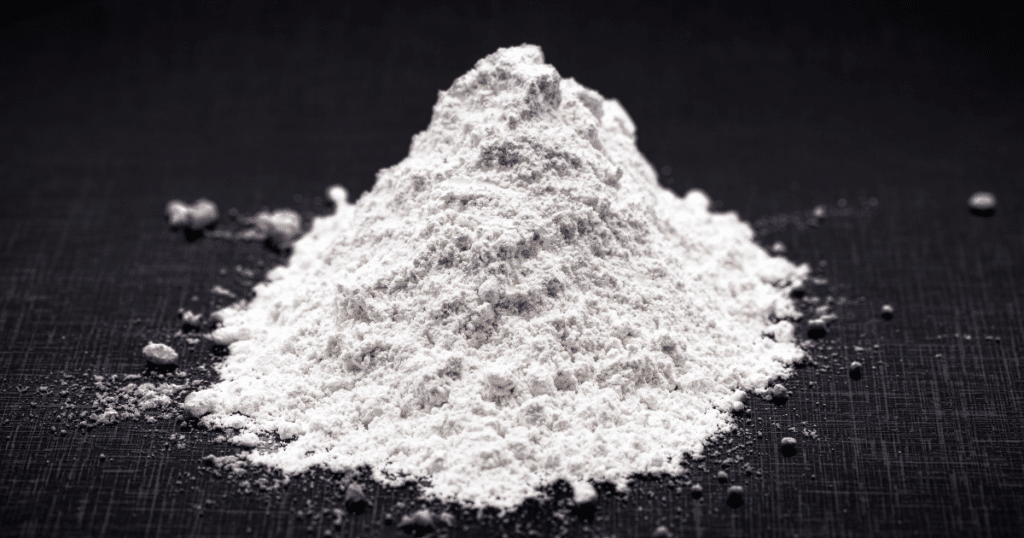
Creatine nitrate enhances exercise performance, boosts muscle endurance, increases power output, and supports quicker recovery. These benefits make it a superior choice for endurance and power athletes.
Let’s dive a little more into some of the key benefits of nitrate and why creatine nitrate may be for you. And let’s not forget women can benefit from creatine, too!
1. Boost Performance
I’ve tried a lot of supplements to boost my exercise performance. After much trial and error, I found creatine nitrate supplementation to stand out significantly. This form of creatine massively enhanced my muscle strength and endurance.
During high-intensity workouts, I could feel the difference. My muscles didn’t tire as quickly, allowing me to perform more work.
My experience with micronized creatine monohydrate was good, but switching to creatine nitrate took things to another level. The added nitrate seemed to give me an extra push during my training sessions for bench press performance and sprinting drills.
That being said, I don’t feel there’s anything wrong with monohydrate and I actually recommend people try monohydrate first before other forms of creatine to see how their body reacts.
But with me, I felt like it increased my power output in ways that other forms of creatine hadn’t managed before. For anyone looking into pre-workout supplements containing creatine, considering the blend with nitrate might be worth your while if you’re aiming for better stamina and energy levels throughout your exercises.
You could also use it post-workout if you so choose.
2. Enhance Muscle Endurance
Boosting performance is just the start. Taking creatine nitrate also leads to better muscle endurance. This means I can train harder and longer without my muscles giving out too soon.
Through my own use, I’ve noticed a big difference in how many reps I can do and how long I can keep going during high-intensity exercise.

Creatine supplementation is key for anyone looking to improve in this area, especially with exercises that push your limits. For me, trying to max out on lifts or go that extra mile used to feel impossible after a certain point.
Now, with creatine nitrate as part of my sports nutrition plan, hitting new personal records has become more frequent.
It’s not just about pushing harder — it’s about training smarter with the right supplements by your side, like pre-workout powders enriched with creatine nitrate, which boost both strength and stamina in ways regular training alone might not achieve.
3. Increase Power Output
Creatine nitrate supplementation can enhance power output during intense workouts. It supports the body’s ATP production, aiding in quick energy release and leading to stronger muscular contractions. The result? More significant force and power in each movement.
Studies have shown that this heightened power output translates to improved athletic performance across various sports and activities.
Moreover, creatine nitrate facilitates better blood flow to working muscles, promoting oxygen delivery and nutrient uptake. This increased circulation contributes to sustained strength and power throughout extended training sessions or competitions.
With a combination of enhanced energy availability and optimized muscle function, athletes can experience notable improvements in their ability to generate force — essential for excelling in power-dependent exercises and movements.
4. Support Recovery
Creatine supplementation aids in recovery by reducing muscle damage and supporting the repair process. It enhances the body’s ability to bounce back after intense workouts, allowing for quicker recovery and less downtime between training sessions.
This means that athletes can maintain a consistent workout schedule without being held back by prolonged soreness or fatigue. By promoting faster recovery, creatine helps athletes stay at the top of their game, ensuring they are ready to perform at their best during each training session.
Creatine supports muscle growth, increases strength, promotes muscle recovery, and improves endurance.
Analyzing Safety and Efficacy

When analyzing safety and efficacy, it’s important to consider the potential side effects, use recommendations, and any acute or chronic effects. Comparing different forms of creatine and examining their impact on performance can provide valuable insights for athletes.
Related Article: What Happens If You Miss Taking Your Daily Creatine Dose?
It’s crucial to evaluate the safety and efficacy of creatine supplementation before recommending its use.
Examine Acute and Chronic Effects of Creatine Nitrate
Creatine nitrate has been extensively studied for its effects on both acute and chronic safety and efficacy in a dose-dependent manner. Research has also examined the influence of dietary supplementation on exercise performance, particularly in relation to the use of creatine nitrate as a new form of creatine.
Studies have explored the potential benefits and possible side effects associated with creatine nitrate at different doses, aiming to determine supplement safety and effectiveness for athletes engaging in various forms of exercise.
Additionally, studies have demonstrated similar performance benefits between creatine monohydrate and nitrate, shedding light on their role in enhancing athletic performance.
Compare Creatine Forms
Choosing the right type of creatine can be a game-changer for your fitness routine. I’ve experimented with different forms over the years to see what works best for my body and goals.
Let’s break down the differences between some of the main forms of creatine — monohydrate, hydrochloride (HCl), and nitrate. I’ll share my insights, which are grounded in firsthand experience and a bit of science.
| Creatine Form | Water Solubility | Effectiveness for Power | Effectiveness for Endurance | Side Effects |
| Monohydrate | Low | High | Medium | Some bloating |
| Hydrochloride (HCl) | High | High | High | Less bloating |
| Nitrate | Very High | Very High | Very High | Least bloating |
Monohydrate is the classic OG. Unless you’re a non-responder or suffer from some sort of digestive issues, there’s really nothing wrong with it at all. It’s well-researched, less expensive, and proven to boost performance. But it often leads to bloating, which I personally found uncomfortable, especially during intense training sessions.
HCl is a newer player. It dissolves better in water, which means your body can absorb it more easily. This form led to noticeable gains in both power and endurance for me, without the pesky bloating.
Nitrate, though, feels like hitting the jackpot. Its solubility is unmatched, making it very easy for the body to absorb. I saw my power and endurance skyrocket with next to no side effects. The lack of bloating was a serious win for my comfort and confidence.
To summarize, while each creatine form has its perks, my journey led me to prefer nitrate for its superior absorption and minimal side effects. If you’re on the fence about which creatine to try, I’d recommend giving nitrate a shot (assuming you’ve already tried monohydrate) to see how it can boost your performance and recovery.
Potential Side Effects
Let’s look at the safety of creatine and the potential side effects of nitrate use. Creatine nitrate may cause potential side effects that athletes should consider before use. It’s important to be aware of the following possible effects:
1. Dehydration: Creatine nitrate may increase water retention, potentially leading to dehydration during intense exercise.
2. Gastrointestinal Issues: Some individuals may experience stomach discomfort or digestive problems when taking creatine nitrate.
3. Kidney Strain: High doses of creatine, including creatine nitrate, could put a strain on the kidneys over time.
4. Weight Gain: Similar to other forms of creatine, creatine nitrate may lead to temporary weight gain due to water retention.
5. Muscle Cramps: Athletes using creatine nitrate should be mindful of muscle cramps that could occur as a side effect.
6. Bloating: Some individuals might experience bloating or discomfort as a result of using creatine nitrate.
It’s crucial for athletes looking into creatine supplementation to consider these potential side effects and consult with a healthcare professional before starting a regimen. Creatine intake has been deemed safe, and even there tend to be fewer issues with creatine nitrate.
Creatine Nitrate Use Recommendations
As a health and fitness enthusiast, consider the following recommendations for using creatine nitrate:
1. Start with a Loading Phase: Consume 20 grams of creatine nitrate daily for 5-7 days to quickly saturate your muscles. If you choose not to and want to skip the muscle creatine loading, you may do so and simply take the maintenance phase from day one (your muscle creatine levels will get saturated but not as quickly as when you load).
2. Maintenance Phase: After the loading phase, take 3-5 grams of creatine nitrate per day to maintain muscle saturation.
3. Timing Matters: Take creatine nitrate before or after your workout to maximize its benefits.
4. Stay Hydrated: Drink plenty of water while using creatine nitrate to support absorption and minimize potential side effects.
5. Combine with Protein: Pair creatine nitrate with protein, as it may enhance muscle protein synthesis and recovery.
6. Cycle Your Usage: Consider cycling on and off creatine nitrate every few months to prevent tolerance buildup.
7. Mind Potential Side Effects: Be aware of potential side effects such as gastrointestinal discomfort, although they’re rare at recommended doses.
You can find the effects of creatine supplementation are fairly common across the board, no matter if you use creatine pills or creatine powder.
If You’re Looking for a New Form… Give Creatine Nitrate a Try!

To wrap this all up, creatine use and the role of creatine have been documented for a few decades now. The ergogenic effects of creatine for both athletes and gym rats are pretty much all the same, thanks to the effectiveness of creatine as a whole. You can find benefits of both creatine monohydrate as well as creatine nitrate.
For endurance and power athletes, creatine nitrate offers superior performance benefits due to its unique combination of creatine and nitrates. Athletes who use creatine nitrate have shown enhanced power output, increased muscle endurance, and improved overall performance.
When comparing different forms of creatine, evidence suggests that a creatine monohydrate supplement is a more favorable option for pre-workout use. It’s essential to thoroughly research and select reputable sports supplements to ensure safety and efficacy.
Ultimately, incorporating proper nutrition, hydration, rest, and personalized training programs alongside potential supplement use can enhance an athlete’s performance and recovery.
If you want some extra reading on creatine supplements as a whole, check out the links below that we’ve published on creatine:
Creatine Nitrate FAQs
Creatine nitrate combines the power of pure creatine monohydrate with the added boost of nitrate for better absorption and performance. This novel form means you get more bang per serving, making it a go-to for endurance and power athletes.
Thanks to its unique blend, creatine nitrate increases plasma nitrate levels, which can lead to enhanced muscle oxygenation during intense workouts. It’s like giving your muscles an extra dose of energy when you need it most.
Absolutely! When used as directed, studies by the International Society of Sports Nutrition have shown that not only is the efficacy of dose-dependent creatine top-notch, but its safety profile is solid, too.
Yes, you can — in fact, many athletes find that combining caffeine with their pre-workout powder that includes creatine boosts focus and energy levels even further. Just remember to monitor how your body responds.
Definitely! The ergogenic effects of mixing nitrates and creates mean you’re looking at improved workout efficiency — translating into gains in bulk muscle mass over time when paired with consistent training.
While generally well-tolerated by healthy adults, some may experience minor issues such as stomach discomfort or changes in blood pressure due to increased nitrate intake; staying hydrated can help mitigate these effects.
Sources
- https://pmc.ncbi.nlm.nih.gov/articles/PMC10974193/
- https://jissn.biomedcentral.com/articles/10.1186/s12970-021-00412-w
- https://examine.com/articles/what-is-creatine-nitrate/
- https://pmc.ncbi.nlm.nih.gov/articles/PMC10132248/
- https://www.researchgate.net/publication/352077375_Creatine_for_Exercise_and_Sports_Performance_with_Recovery_Considerations_for_Healthy_Populations
- https://pmc.ncbi.nlm.nih.gov/articles/PMC4815124/
- https://pubmed.ncbi.nlm.nih.gov/27034623/
- https://www.mdpi.com/2072-6643/16/6/766
- https://www.sciencedirect.com/science/article/pii/S2405844022034016
- https://examine.com/supplements/creatine/research/
- https://www.mdpi.com/2072-6643/14/5/1035
- https://www.researchgate.net/publication/366083064_Analysis_of_the_efficacy_safety_and_cost_of_alternative_forms_of_creatine_available_for_purchase_on_Amazoncom_Are_label_claims_supported_by_science
- https://www.healthline.com/nutrition/types-of-creatine
- https://www.healthline.com/nutrition/creatine-safety-and-side-effects
- https://ods.od.nih.gov/factsheets/exerciseandathleticperformance-healthprofessional/
- https://www.researchgate.net/publication/378775875_The_Effect_of_Creatine_Nitrate_and_Caffeine_Individually_or_Combined_on_Exercise_Performance_and_Cognitive_Function_A_Randomized_Crossover_Double-Blind_Placebo-Controlled_Trial
- https://jissn.biomedcentral.com/articles/10.1186/s12970-017-0173-z


*Disclosure: This article may contain affiliate links or ads, which means we earn a small commission at no extra cost to you if you make a purchase through these links. These commissions help support the operation and maintenance of our website, allowing us to continue producing free valuable content. Your support is genuinely appreciated, whether you choose to use our links or not. Thank you for being a part of our community and enjoying our content.
PLEASE CONSIDER SHARING THIS ON YOUR SOCIAL MEDIA TO HELP OTHERS LEARN MORE ABOUT THIS TOPIC.


